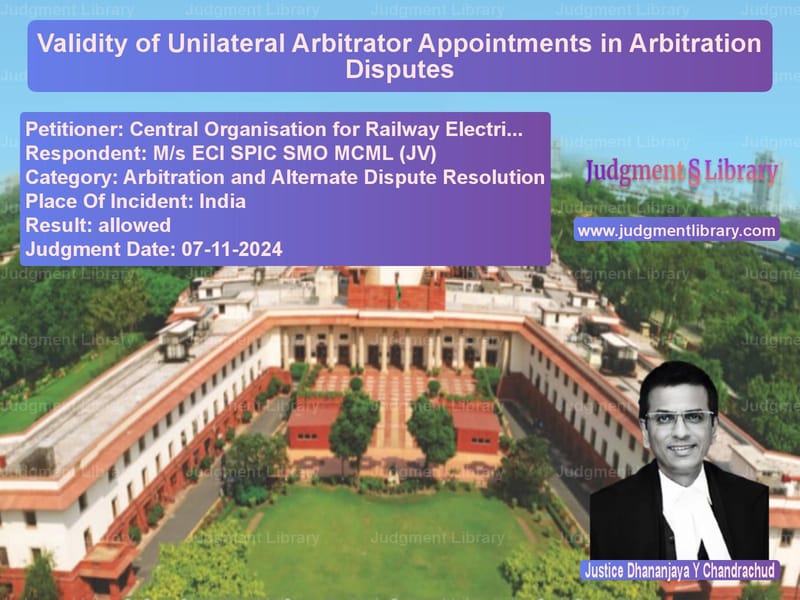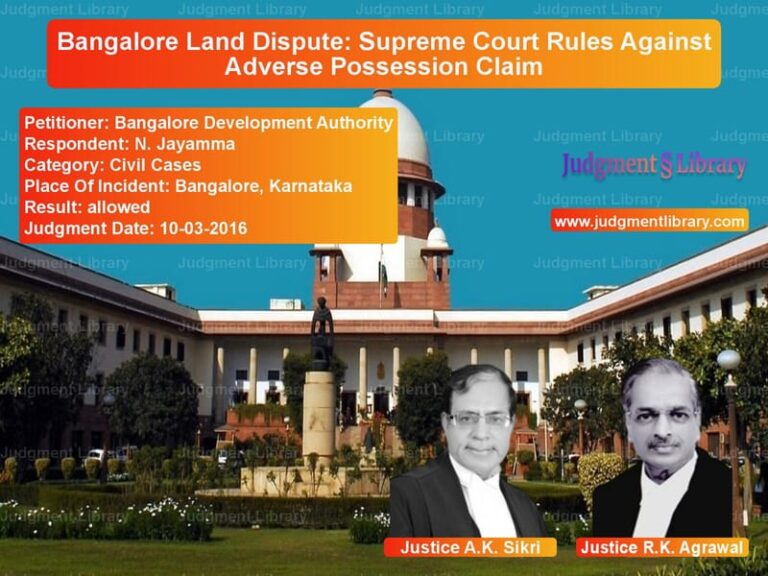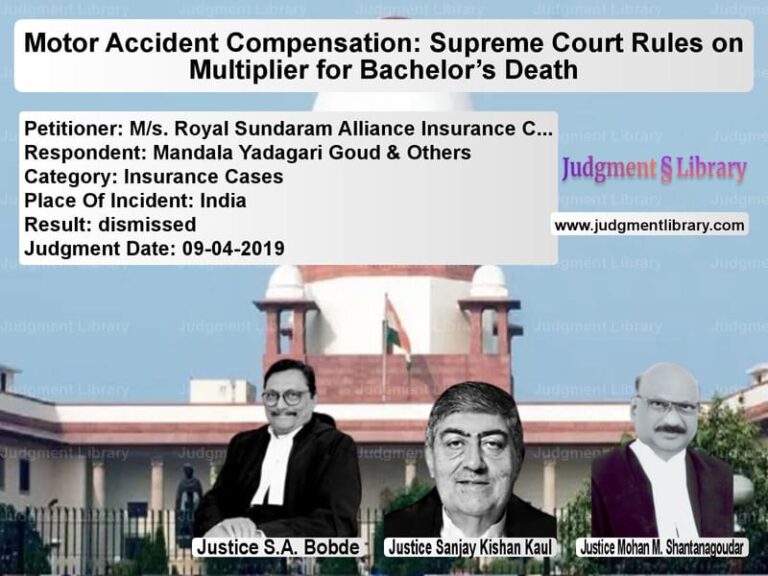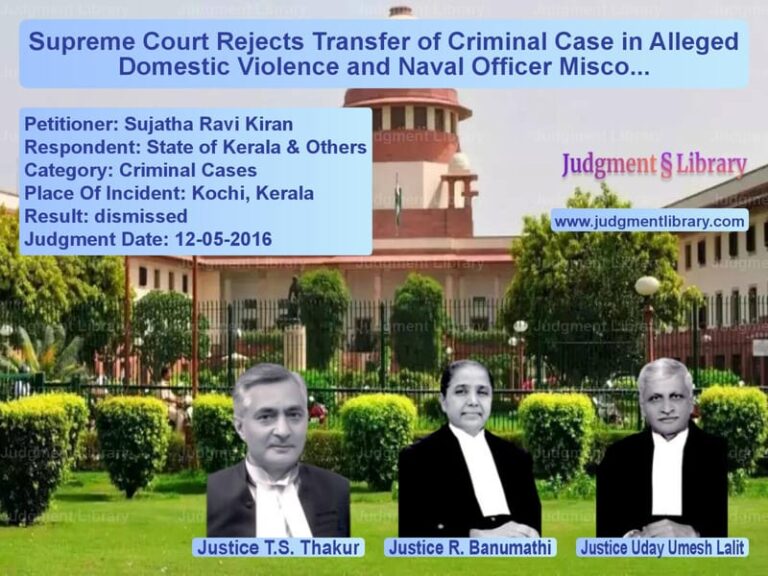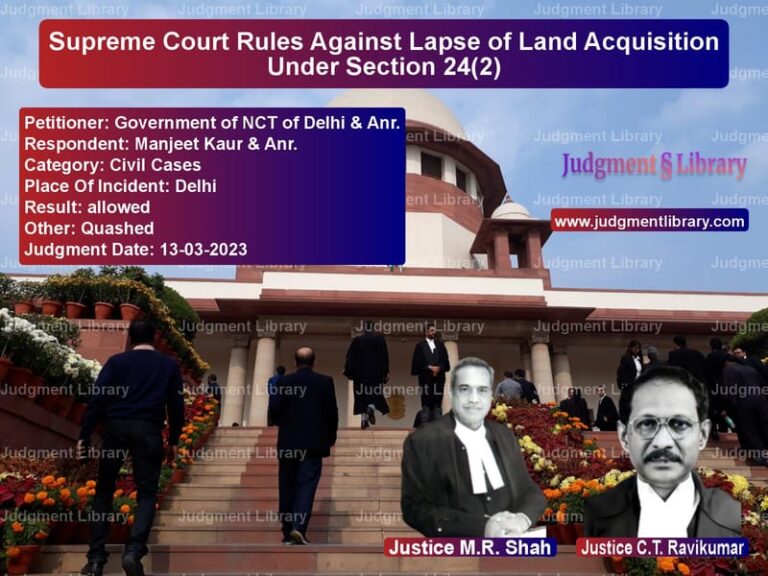Validity of Unilateral Arbitrator Appointments in Arbitration Disputes
The Supreme Court recently delivered a significant ruling in the case of Central Organisation for Railway Electrification vs. M/s ECI SPIC SMO MCML (JV), addressing the issue of unilateral appointment of arbitrators in arbitration agreements. The ruling is crucial in shaping the independence and impartiality of arbitral tribunals in India, particularly in public-private contracts.
The case involved a dispute between the Central Organisation for Railway Electrification (petitioner) and M/s ECI SPIC SMO MCML (JV) (respondent), concerning the validity of an arbitration clause that granted the General Manager of the Railways the authority to appoint arbitrators. The clause required the Railways to provide a panel of arbitrators, from which the respondent had to choose its nominee, while the General Manager retained the power to appoint the presiding arbitrator.
Background of the Dispute
The petitioners argued that the arbitration clause was valid and in accordance with party autonomy principles enshrined in the Arbitration and Conciliation Act, 1996. The respondents, however, challenged the provision, citing concerns over the lack of independence and impartiality in the arbitral tribunal’s composition.
Key Arguments by the Petitioner
- The petitioner contended that the Arbitration Act allows parties to mutually agree on the procedure for appointing arbitrators.
- They asserted that the mere fact that the Railways curated the list of arbitrators did not render the process unfair or biased.
- They relied on previous decisions, such as Voestalpine Schienen GmbH v. Delhi Metro Rail Corporation Ltd., to argue that retired government officers can act as arbitrators without concerns of bias.
Key Arguments by the Respondent
- The respondent claimed that the arbitration clause violated Section 12(5) of the Arbitration Act, which mandates the independence and impartiality of arbitrators.
- They argued that allowing the General Manager to appoint the presiding arbitrator created an unfair advantage for the Railways.
- The respondent relied on judgments such as TRF Ltd v. Energo Engineering Projects Ltd. and Perkins Eastman Architects DPC v. HSCC (India) Ltd., which emphasized that a person who is ineligible to act as an arbitrator cannot nominate an arbitrator.
Supreme Court’s Observations
The Supreme Court examined various precedents and principles governing the independence and impartiality of arbitral tribunals. The court emphasized that arbitration is a quasi-judicial function that must adhere to principles of natural justice.
Some of the key observations by the court were:
- Equality in arbitration extends to the stage of appointment of arbitrators, as per Section 18 of the Arbitration Act.
- A party with an interest in the dispute cannot unilaterally appoint a sole arbitrator or majority of the arbitral tribunal, as it violates the principles of fairness and impartiality.
- Any arbitration agreement that mandates the weaker party to choose from a pre-curated panel of arbitrators controlled by the stronger party is inherently biased.
- The court reaffirmed the principle that an arbitrator must not only be impartial but must also be seen to be impartial to maintain the integrity of the arbitral process.
Final Judgment and Ruling
The Supreme Court ruled that the appointment process outlined in the arbitration clause of the Railways contract was not in compliance with Section 12(5) of the Arbitration Act. The appointment process created an unfair advantage for the Railways, violating the principles of equal treatment and neutrality.
The court set aside the arbitration clause and directed the parties to approach the competent authority for the appointment of an independent and impartial arbitral tribunal.
Implications of the Judgment
This ruling has far-reaching consequences for arbitration in India, particularly in public contracts. It ensures that:
- Government entities cannot unilaterally control the appointment of arbitrators.
- Private parties involved in public-private contracts have equal rights in the arbitral process.
- The independence and impartiality of arbitral tribunals are safeguarded, promoting fairness in dispute resolution.
The judgment reinforces the autonomy of arbitration while ensuring that it aligns with fundamental principles of fairness and justice. Going forward, arbitration agreements in government contracts will need to be drafted in a manner that ensures a level playing field for all parties involved.
Petitioner Name: Central Organisation for Railway Electrification.Respondent Name: M/s ECI SPIC SMO MCML (JV).Judgment By: Justice Dhananjaya Y Chandrachud.Place Of Incident: India.Judgment Date: 07-11-2024.
Don’t miss out on the full details! Download the complete judgment in PDF format below and gain valuable insights instantly!
Download Judgment: central-organisation-vs-ms-eci-spic-smo-mcm-supreme-court-of-india-judgment-dated-07-11-2024.pdf
Directly Download Judgment: Directly download this Judgment
See all petitions in Arbitration Awards
See all petitions in Dispute Resolution Mechanisms
See all petitions in Arbitration Act
See all petitions in Institutional Arbitration
See all petitions in Enforcement of Awards
See all petitions in Judgment by Dhananjaya Y Chandrachud
See all petitions in allowed
See all petitions in supreme court of India judgments November 2024
See all petitions in 2024 judgments
See all posts in Arbitration and Alternate Dispute Resolution Category
See all allowed petitions in Arbitration and Alternate Dispute Resolution Category
See all Dismissed petitions in Arbitration and Alternate Dispute Resolution Category
See all partially allowed petitions in Arbitration and Alternate Dispute Resolution Category

